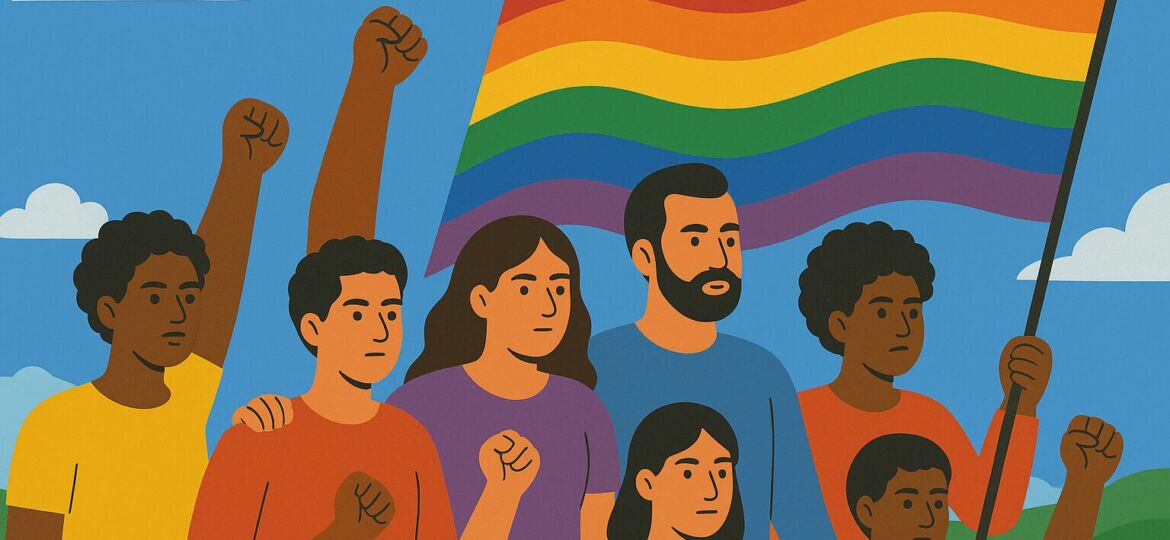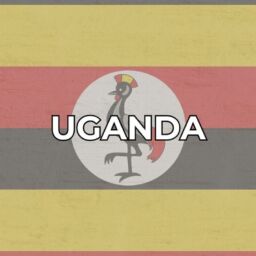
At ProtectDefenders.eu, we are always glad to stay in close contact with our partners and sister organisations around the world, includingregional protection networks. Connections are our strength, in fact they allow us to share knowledge, deepen our understanding, and gain valuable insights into the evolving challenges faced by human rights defenders across regions.
In this spirit of collaboration, we wanted to spotlight recent developments concerning LGBTQI people and defenders in West and East Africa. In particular, Uganda, one of the region’s most influential countries, has experienced a sharp deterioration in the protection of LGBTQI rights. This trend reached a peak in 2023 with the adoption of the Anti-Homosexuality Act (AHA), a law that not only is incredibly repressive and dangerous but that also created a wave against LGBTQI people in other states in the area.
Since President Yoweri Museveni came to power in 1986, Ugandan authorities have imposed severe restrictions on the rights to freedom of expression, association, and peaceful assembly. These curbs have been especially harsh for LGBTQI people and those advocating for their rights.
Although the criminalization of same-sex conduct dates back to colonial-era laws, the government’s recent actions have deepened repression to unprecedented levels. The AHA, enacted in May 2023, introduced some of the world’s harshest penalties for consensual same-sex relations and related activities.
According to Human Rights Watch, the law has been accompanied by an escalation in arbitrary arrests, police raids, and harassment. Authorities have targeted NGOs, entrapped individuals via social media, and extorted money from those detained. LGBTQI people have also faced evictions, blackmail, and mob violence, often carried out by landlords or local councils with impunity.
A report by the Human Rights Awareness and Promotion Forum (HRAPF), covering September 2023 to May 2024, documents hundreds of violations against LGBTQI persons and their allies during the first year of the AHA’s enforcement. The period also saw community-led legal challenges before the Constitutional Court of Uganda and the East African Court of Justice. In April 2024, the Constitutional Court upheld the law, striking down only a few provisions while maintaining its core punitive articles criminalising “homosexuality,” “promotion of homosexuality,” and “aggravated homosexuality.”
HRAPF identified the Uganda Police, landlords, local councils, and mobs as primary violators, many of whom took the law into their own hands. These abuses have deepened existing vulnerabilities, allarmingly limiting access to essential services such as healthcare and housing.
In this environment, civil society organisations continue to operate under intense pressure. The Uganda Key Populations Consortium (UKPC) reported that in 2024, advocacy had to become both strategic and urgent.
Meanwhile, Sexual Minorities Uganda (SMUG) and other local actors have continued to collect and share data on violations. Their documentation efforts reveal how language and terminology are carefully adapted to ensure safety. As one activist explained, “At the district level, we use the term marginalised youth instead of key populations — it’s about protecting our work and the people we serve.”
This adaptation underscores the political nature of reporting in repressive environments: what is said, how it’s said, and to whom, can determine whether organisations survive or are silenced.
Despite mounting risks, local and regional networks continue to build resilience. Reports by HRAPF, SMUG, and the Strategic Response Team (SRT) covering September 2023–May 2024, provide critical evidence for regional advocacy before the African Commission on Human and Peoples’ Rights and the East African Court of Justice, where cases challenging the AHA’s compatibility with human rights standards remain ongoing.
One year after the AHA’s enactment, Uganda’s LGBT community continues to face systematic persecution. Despite all this, in the face of fear and isolation, community-led organisations persist, documenting violations, offering protection, and keeping alive the vision of equality and dignity for all.
It is also important to note that the sources we reference here are only partial. Information on these developments is constantly emerging through a variety of channels, from local networks to international research, interviews, and grassroots testimonies. For example, this podcast offers an especially insightful discussion on how defenders and community organisers are navigating Uganda’s current climate of repression.
At ProtectDefenders.eu believes that sharing such perspectives, from partners, journalists, and activists strengthens our collective understanding and response to the challenges faced by human rights defenders across the region.
• Human Rights Watch, “Uganda: Anti-LGBT Law Intensifies Abuses” (2024)
• Human Rights Awareness and Promotion Forum (HRAPF), Report of Violations on the Basis of SOGIE, September 2023–May 2024
• Sexual Minorities Uganda (SMUG), Reports and Documentation (2024)
• Uganda Key Populations Consortium (UKPC), Annual Report 2024



